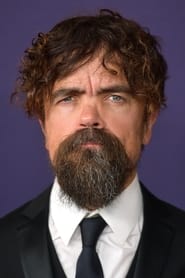
Ask Your Own Question
What is the plot?
In "Jon's Tragic Flaw," the episode opens with a somber atmosphere at Castle Black, where Jon Snow is grappling with the weight of leadership as the newly elected Lord Commander of the Night's Watch. The camera pans over the weary faces of the Night's Watch members, highlighting their exhaustion and fear of the looming threat from the White Walkers. Jon stands at the edge of the wall, looking out into the dark wilderness, his expression a mix of determination and doubt. He reflects on the sacrifices made by his brothers and the burden of the decisions he must make.
The scene shifts to Jon in a meeting with the other members of the Night's Watch, including Alliser Thorne and Olly. Tension fills the room as Thorne openly questions Jon's decisions, particularly his willingness to ally with the wildlings. Jon defends his choice, arguing that they must unite against the greater threat of the White Walkers. The internal conflict among the Night's Watch members is palpable, with some supporting Jon's vision while others remain staunchly opposed. Jon's frustration grows as he realizes that his leadership is being challenged from within.
Next, Jon visits the wildlings' camp, where he meets with Tormund Giantsbane. The wildlings are wary of Jon, unsure of his intentions. Jon expresses his desire to help them find safety south of the Wall, but Tormund is skeptical, recalling the history of conflict between their people and the Night's Watch. Jon's earnestness shines through as he tries to bridge the gap, emphasizing the need for unity against the White Walkers. The tension is thick as Jon and Tormund negotiate, with Jon's desperation to protect both the Night's Watch and the wildlings driving the conversation.
As the episode progresses, Jon faces a pivotal moment when he decides to lead a mission to bring the wildlings through the Wall. He gathers a small group of Night's Watch members, including Samwell Tarly, who expresses his concerns about the dangers they may face. Jon reassures Sam, revealing his deep-seated belief that they must take risks to save lives. The camaraderie among the group is evident, but so is the underlying fear of the unknown. Jon's resolve is tested as he prepares for the journey, knowing that his decisions could have dire consequences.
The mission unfolds with a tense atmosphere as Jon and his group encounter a band of wildlings led by Tormund. The initial meeting is fraught with mistrust, but Jon's determination to protect the wildlings begins to sway some of them. However, the situation escalates when they are ambushed by a group of White Walkers. The fight is chaotic, with Jon and his men battling fiercely against the undead. The visual intensity of the scene captures the horror of the White Walkers, their icy presence contrasting sharply with the warmth of the living.
In the heat of battle, Jon's tragic flaw becomes evident as he risks his life to save a wildling child, demonstrating his deep compassion. This decision puts him in grave danger, and he narrowly escapes with the help of Tormund and his men. The emotional weight of the moment is heavy, as Jon realizes that his desire to protect others can lead to perilous outcomes. The aftermath of the battle leaves Jon shaken, grappling with the consequences of his choices and the lives that hang in the balance.
The episode concludes with Jon returning to Castle Black, visibly changed by the events. He faces the Night's Watch members, who are divided in their opinions about his actions. Some express admiration for his bravery, while others remain critical, fearing that his compassion could lead to their downfall. Jon stands resolute, but the internal conflict within the Night's Watch is far from resolved. The final shot lingers on Jon's face, a mixture of determination and uncertainty, as he contemplates the heavy burden of leadership and the tragic flaw that may ultimately define his fate.
What is the ending?
In the ending of "Jon's Tragic Flaw," Jon Snow faces the consequences of his decisions as he grapples with loyalty, honor, and the burdens of leadership. The episode culminates in a poignant moment where Jon's commitment to his principles leads to a tragic outcome, highlighting the complexities of his character and the harsh realities of the world he inhabits.
As the episode unfolds, we see Jon Snow standing at the Wall, contemplating the weight of his responsibilities as Lord Commander of the Night's Watch. The cold winds whip around him, mirroring the turmoil within. He reflects on his past choices, particularly his decision to ally with the Wildlings, which has created a rift among his brothers at the Wall. The tension is palpable as he faces dissent from those who believe he has betrayed their cause.
In a series of flashbacks, we witness Jon's journey from a Stark bastard to a leader, emphasizing his internal struggle with identity and belonging. Each memory reveals his deep-seated desire to do what is right, even when it conflicts with the expectations of those around him. His tragic flaw--his unwavering sense of honor--becomes increasingly evident as he navigates the treacherous political landscape of the Night's Watch.
The climax of the episode occurs during a tense meeting with his fellow brothers. Jon attempts to justify his actions, passionately arguing for the necessity of unity against the looming threat of the White Walkers. However, his words fall on deaf ears, and the atmosphere grows hostile. The camera captures the faces of his brothers, filled with anger and betrayal, as they turn against him.
In a heart-wrenching moment, Jon is confronted by his closest allies, who are torn between their loyalty to him and their fear of the consequences of his decisions. The scene is charged with emotion as Jon pleads for understanding, but ultimately, he is met with betrayal. The brothers of the Night's Watch, feeling threatened by his leadership and the changes he has implemented, make a fateful decision.
The episode concludes with Jon Snow being stabbed by his own men, a brutal act that underscores the tragic nature of his character. As he falls to the ground, the camera lingers on his face, capturing the shock and betrayal in his eyes. The final shot is a haunting reminder of the cost of honor in a world where loyalty is often fleeting.
In summary, the ending of "Jon's Tragic Flaw" serves as a powerful exploration of Jon Snow's character, illustrating how his commitment to his principles ultimately leads to his downfall. The episode leaves viewers with a sense of foreboding, as the consequences of his tragic flaw resonate throughout the narrative, setting the stage for the conflicts to come.
Is there a post-credit scene?
In the episode "Jon's Tragic Flaw" from the "Game of Thrones" specials, there is no post-credit scene. The episode focuses on exploring Jon Snow's character, his motivations, and the tragic elements that define his journey throughout the series. It delves into his struggles with identity, loyalty, and the burdens of leadership, but it concludes without any additional scenes or content after the credits. The emphasis remains on Jon's internal conflicts and the choices he makes, leaving viewers with a deeper understanding of his character rather than a teaser or continuation of the narrative.
What is Jon Snow's tragic flaw as depicted in this special?
Jon Snow's tragic flaw is his unwavering sense of honor and duty, which often leads him to make decisions that put himself and others in danger. This is highlighted in various scenes where he prioritizes his moral compass over strategic advantage, such as when he chooses to save his half-brother Robb Stark instead of securing his own position.
How does Jon's relationship with Ygritte influence his decisions?
Jon's relationship with Ygritte serves as a pivotal emotional anchor for him, showcasing his internal conflict between his Stark upbringing and his loyalty to the Night's Watch. Their love complicates his sense of duty, leading him to question his allegiance and ultimately impacting his choices during critical moments.
What role does Jon's parentage play in his character development?
Jon's parentage is a significant aspect of his identity crisis throughout the series. The special delves into how his belief that he is a bastard shapes his interactions with others, particularly with the Stark family, and fuels his desire to prove himself worthy of love and respect.
How does Jon's leadership style reflect his tragic flaw?
Jon's leadership style is marked by his idealism and commitment to doing what is right, often at the expense of pragmatic decision-making. This is illustrated in scenes where he struggles to balance the needs of his men with his moral obligations, leading to tension and conflict within the Night's Watch.
What are the consequences of Jon's decisions throughout the special?
The consequences of Jon's decisions are profound, leading to both personal loss and broader implications for the Night's Watch. His choices often result in strained relationships, particularly with characters like Alliser Thorne, and set the stage for future conflicts that stem from his inability to compromise his values.
Is this family friendly?
"Game of Thrones: Jon's Tragic Flaw" contains several elements that may not be suitable for children or sensitive viewers. Here are some potentially objectionable aspects:
-
Violence: The series often depicts intense battles and personal conflicts, which can include graphic violence and bloodshed.
-
Death: Characters face significant mortality, with emotional scenes surrounding loss and betrayal that may be distressing.
-
Mature Themes: The show explores complex themes such as honor, betrayal, and sacrifice, which may be difficult for younger audiences to fully grasp.
-
Emotional Turmoil: Characters experience deep emotional struggles, including feelings of isolation, guilt, and despair, which could be upsetting.
-
Mature Language: The dialogue includes strong language that may not be appropriate for younger viewers.
These elements contribute to the overall tone of the series, which is often dark and intense.
























